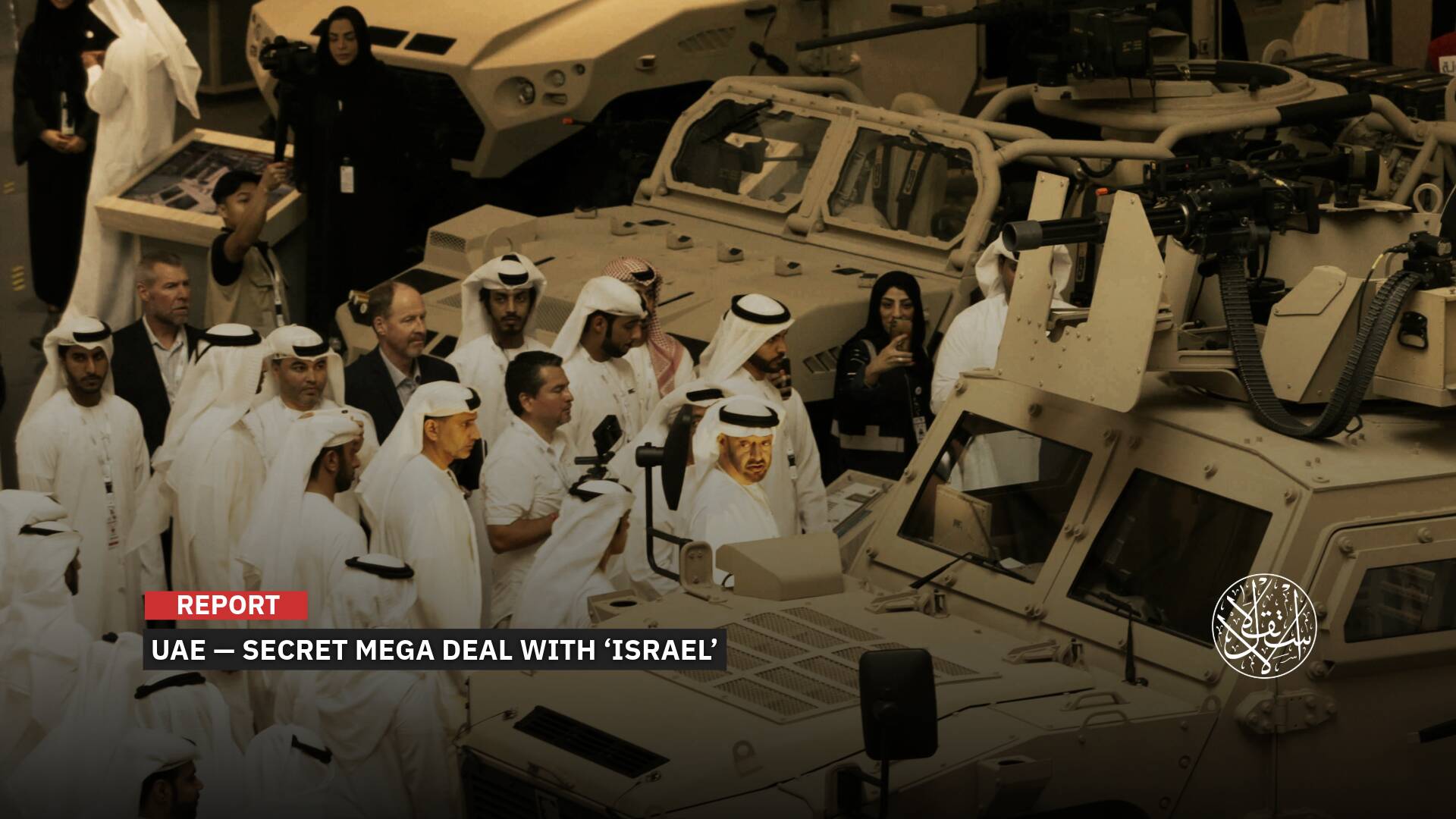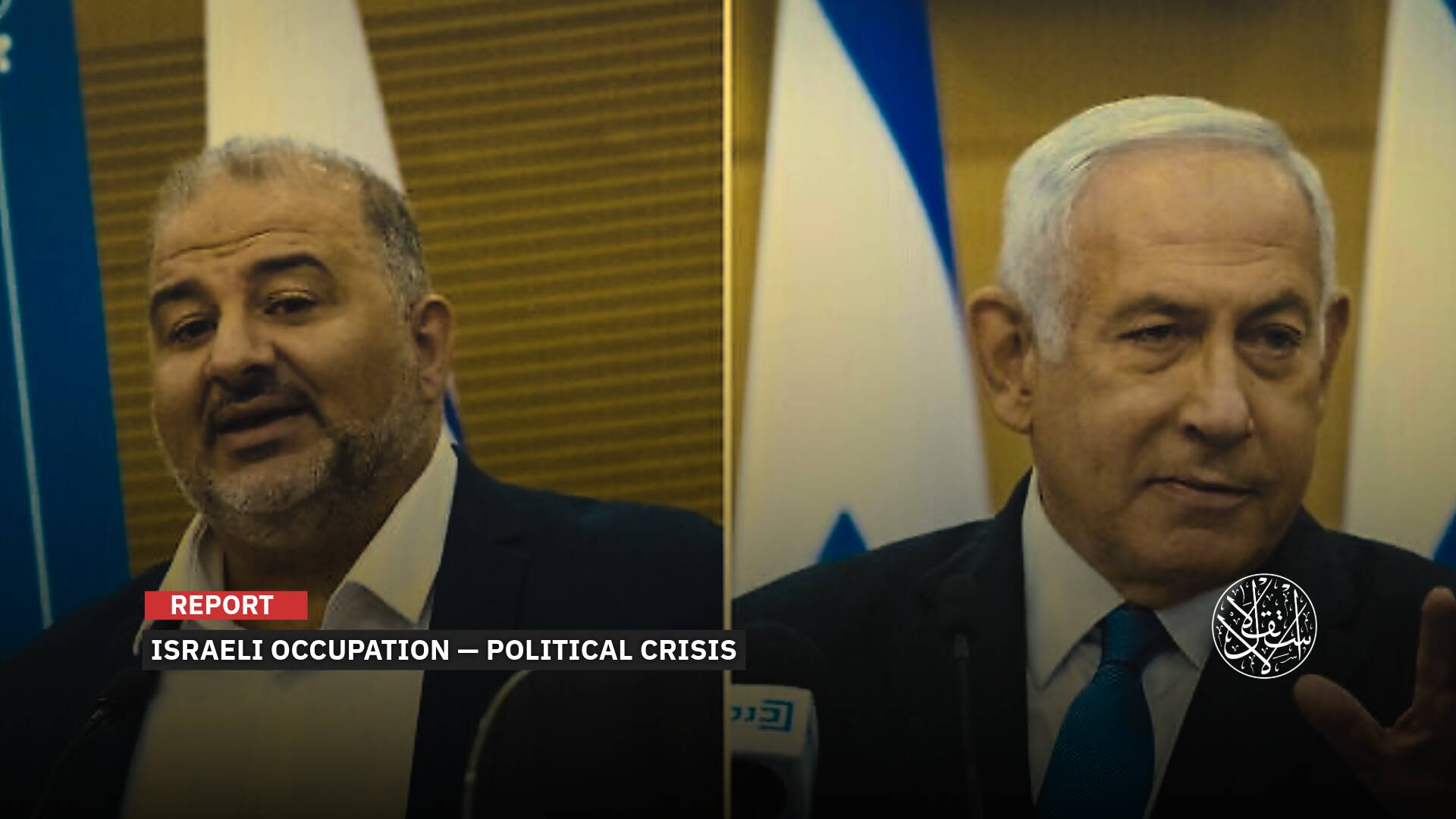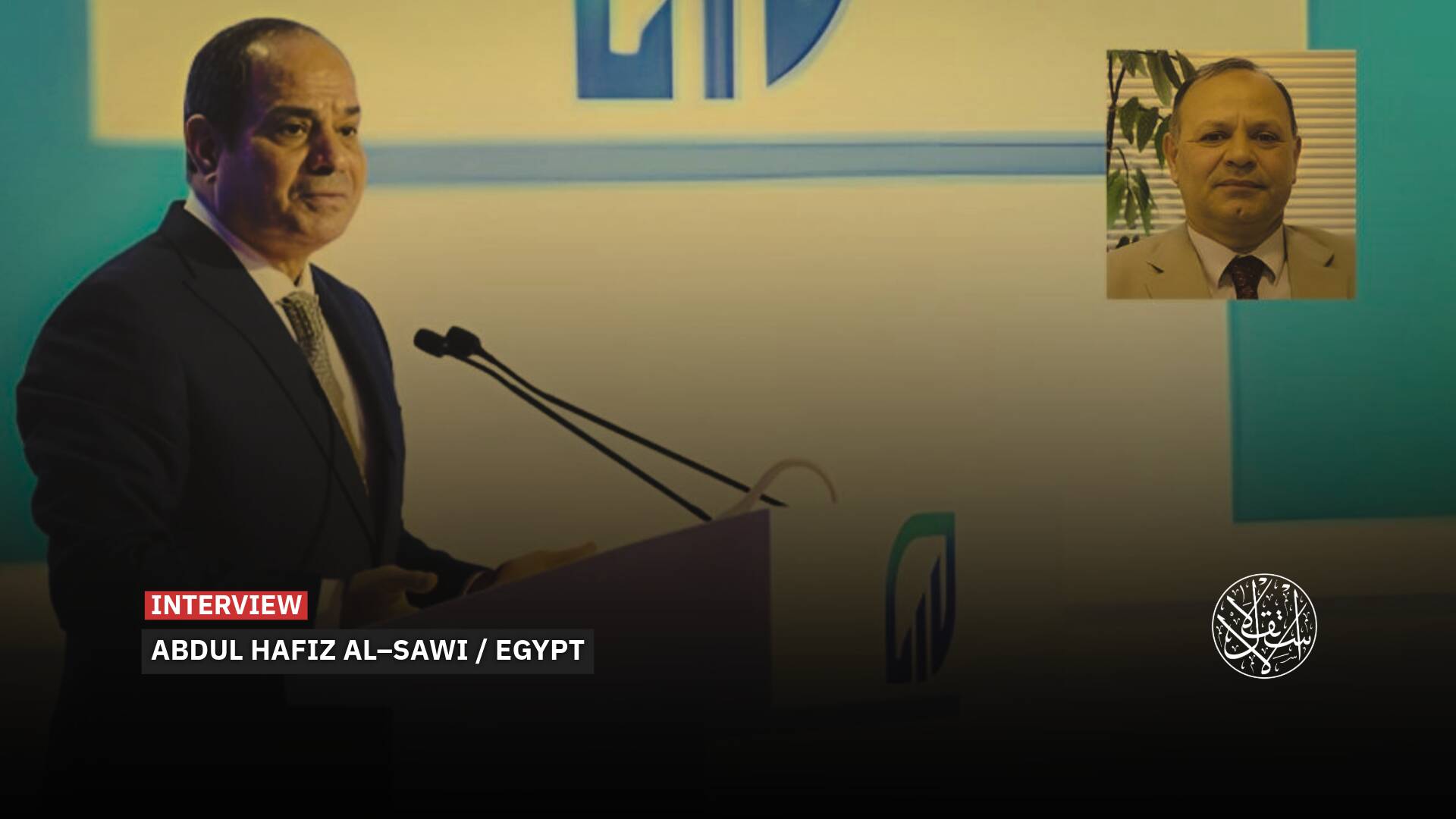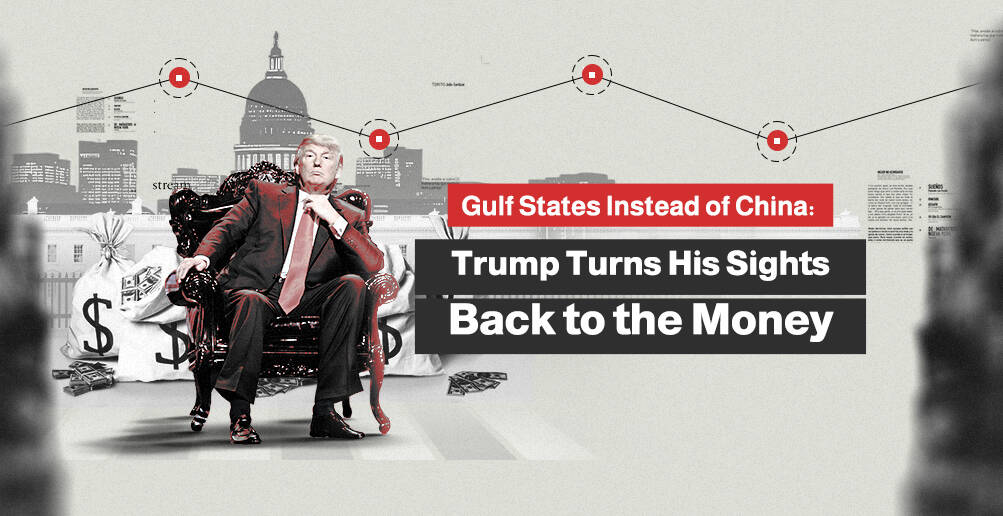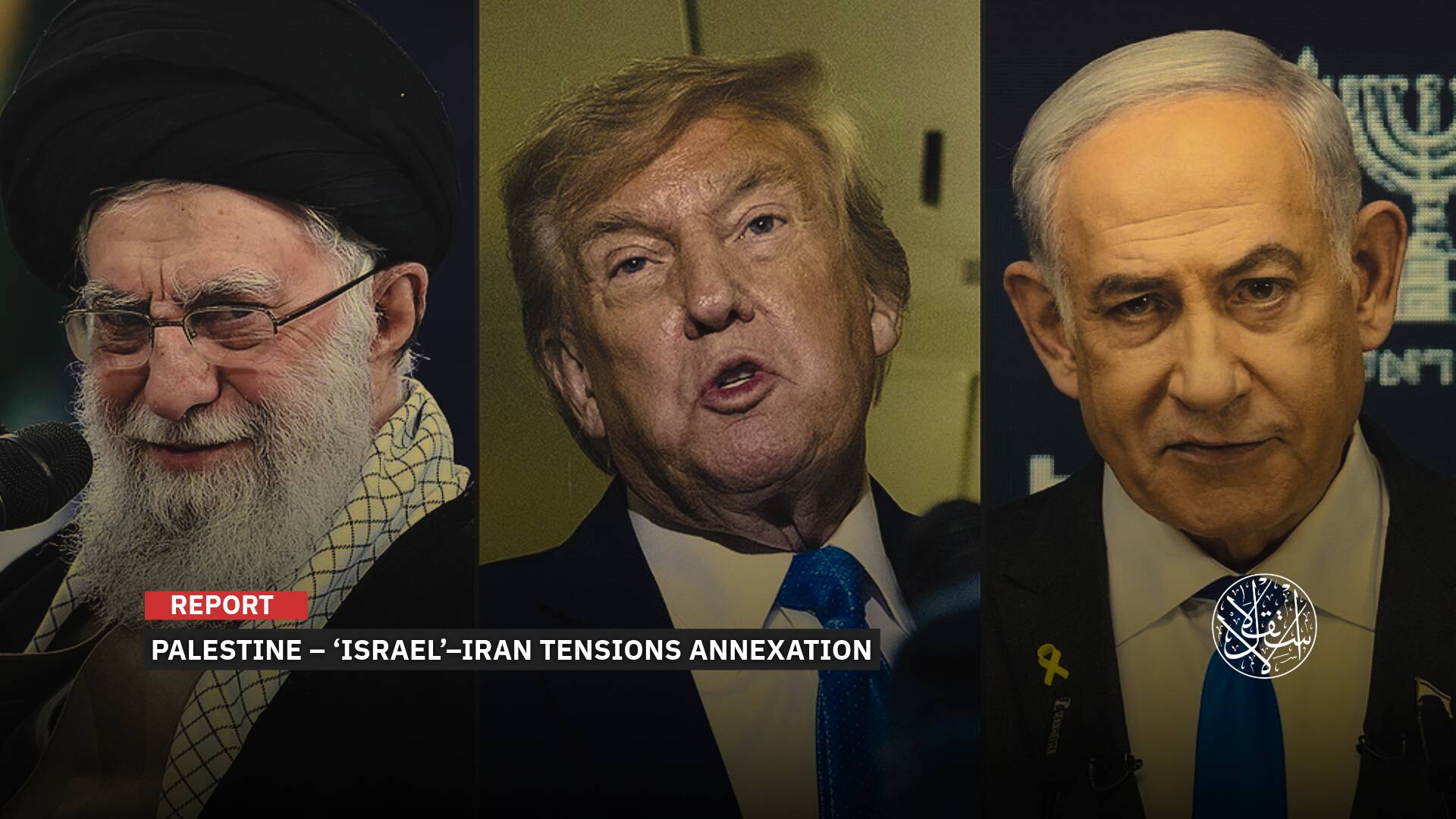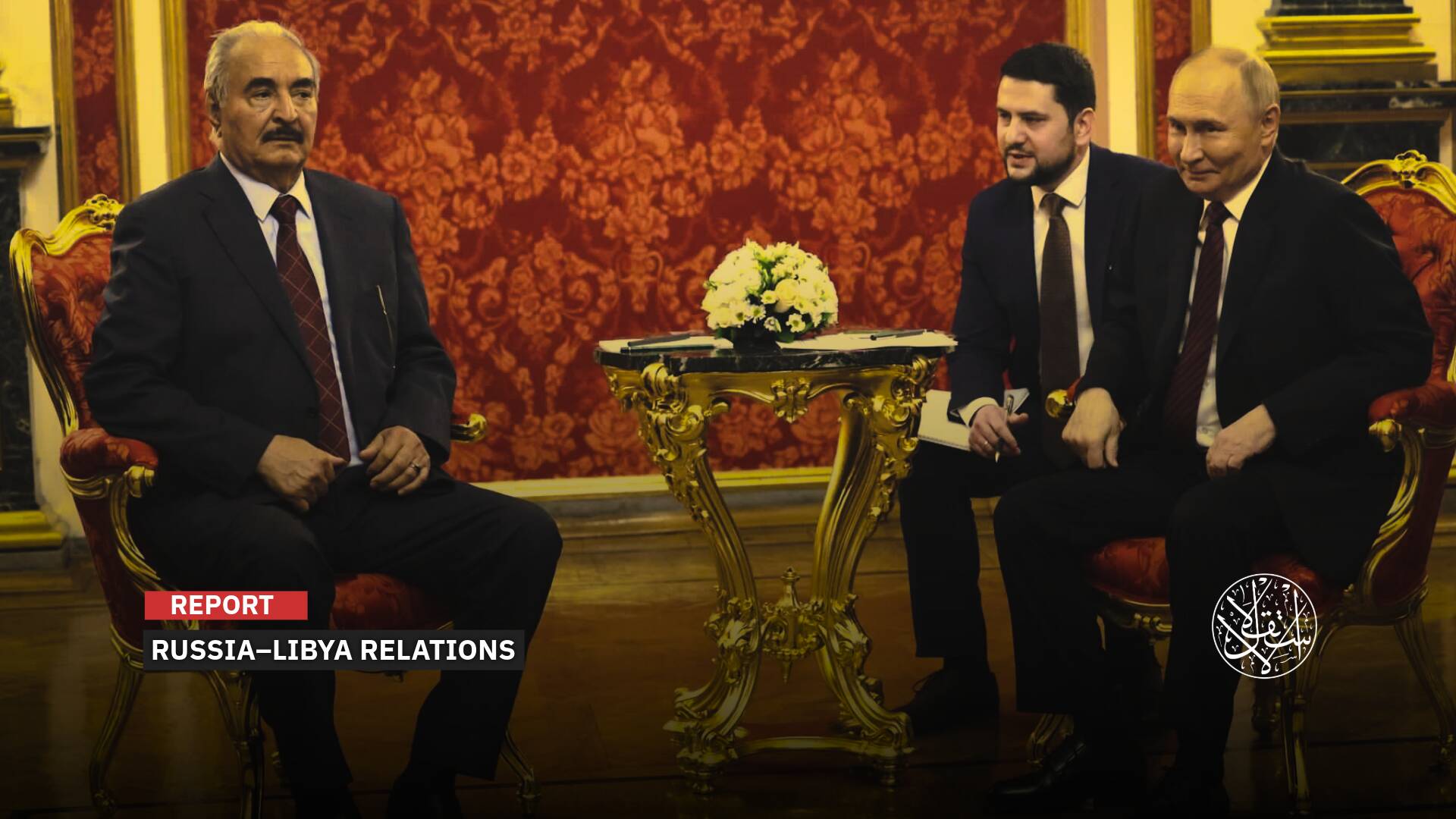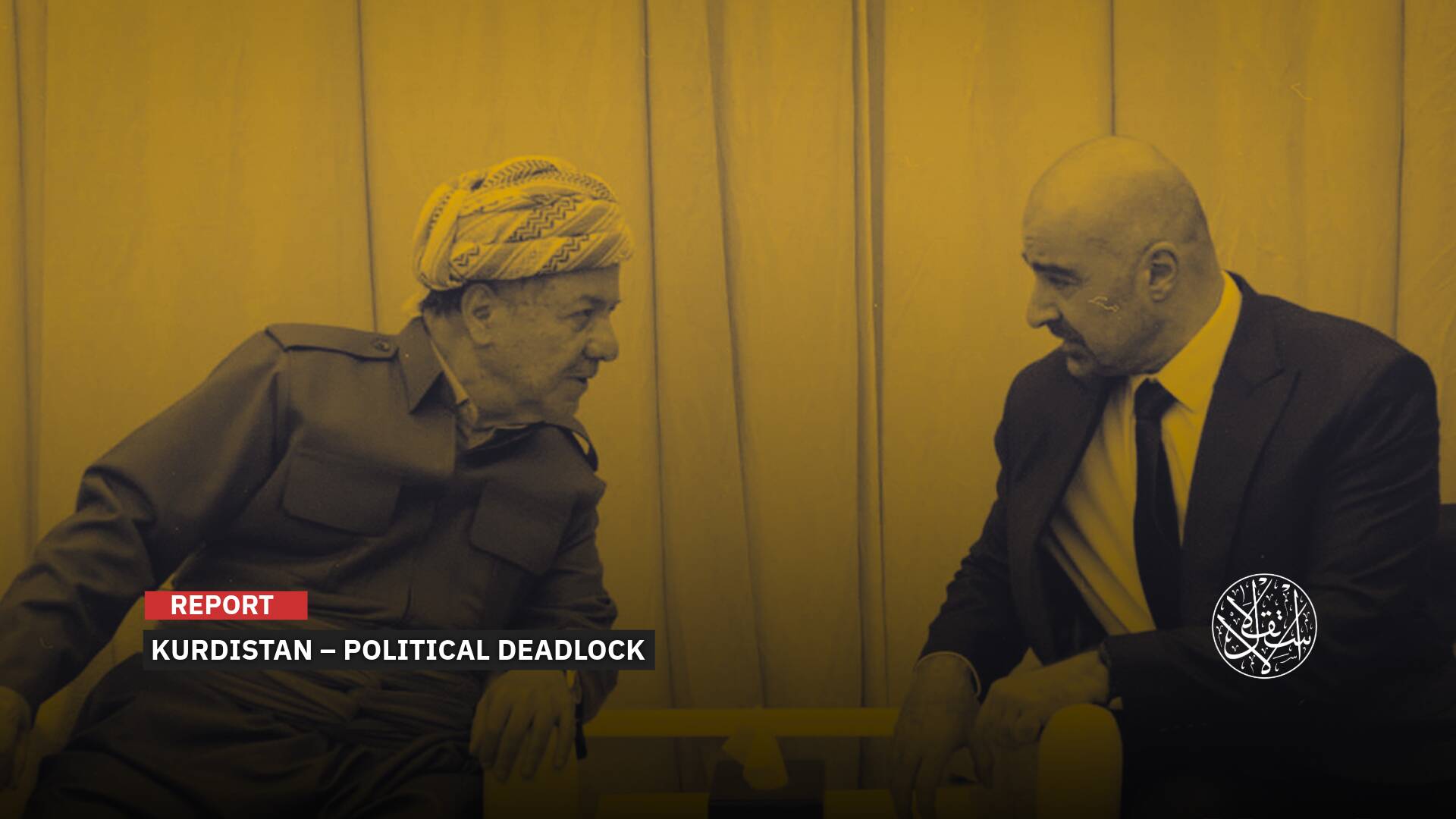International Pressure on Abbas: Why He’s Showing Flexibility Toward Reconciliation With Dahlan

Both sides voiced their eagerness to achieve Fatah's internal reconciliation.
In anticipation of the post-war scenarios in Gaza, Palestinian Authority President Mahmoud Abbas has, for the first time, taken steps toward reconciling with his long-time political rivals to unify the fragmented Fatah movement.
As Israeli genocide on Gaza shows no signs of ending and with Tel Aviv rejecting any future role for Hamas in the Strip, discussions have resurfaced about resolving Fatah’s internal divisions as a step toward governing Gaza.
Simultaneously, Fatah, under Abbas’s leadership, has been holding talks with Hamas in Cairo, exploring ways for the Palestinian Authority to assume full control of Gaza after the Israeli war.
Fatah Reconciliation
This shift began in late August 2024, with increasing reports of efforts to mend ties between Abbas and the Democratic Reform Bloc in Fatah, led by Mohammad Dahlan.
Dahlan, a former senior Fatah figure, was expelled from the movement by Abbas in 2011 while serving on its Central Committee. He now faces charges of corruption by the Palestinian Authority.
In 2016, the Palestinian Anti-Corruption Court sentenced him to three years in prison on charges of embezzling $16 million during his tenure as the Coordinator of Security Affairs for the Presidency.
Abbas has also accused Dahlan of plotting to overthrow him and being involved in the alleged poisoning of the late President Yasser Arafat, leading to his death.

Currently residing in the UAE, Mohammad Dahlan serves as an advisor to President Mohamed bin Zayed, who reportedly favors him as a potential successor to lead the Palestinian Authority, sidelining both Abbas and Hamas.
Born in Khan Yunis in southern Gaza, Dahlan was a prominent figure in Fatah’s “middle generation” leadership. Following the 1993 Oslo Accords and the establishment of the Palestinian Authority, he held high-ranking positions, including head of Gaza’s Preventive Security Force and Minister of Civil Affairs.
In these roles, he engaged in political and security talks with Israeli officials. However, his name later surfaced during the Second Intifada (2000) in connection with what “Israel” described as “terrorist activities.”
According to Fatah sources cited by Arab media, Abbas is now “seriously willing” to reintegrate expelled leaders and activists into the movement.
This shift follows meetings between PLO Executive Committee Secretary-General Hussein al-Sheikh and key figures in Dahlan’s Democratic Reform Bloc, including Samir al-Mashharawy and Jafar Hdaib, reportedly under Abbas’s direction.
After a Fatah Central Committee meeting chaired by Abbas on September 9, 2024, senior officials stated the movement had decided to push for reconciliation with all expelled members, including Dahlan’s faction.
Samir al-Mashharawy, Dahlan’s deputy, held talks in Cairo with senior Fatah officials, including Hussein al-Sheikh. He called for reinstating all expelled members into the movement and security forces, as well as annulling their convictions.
While Abbas ordered further engagement with the Reform Bloc, he has not yet made a formal decision on reinstating expelled Fatah members, according to The Media Line.
Although no major breakthroughs were reported in the following weeks, both sides voiced their commitment to reconciliation.
On October 17, 2024, Fatah spokesperson Munther al-Hayek in Gaza said the movement had decided to reintegrate all departed members as part of efforts to rebuild Fatah. Speaking to a local radio station, he confirmed that the Central Committee was addressing all related issues, including those involving Mohammed Dahlan.
Similarly, Imad Mohsen, spokesperson for the Democratic Reform Bloc, voiced readiness for dialogue aimed at achieving Fatah's unity. He stressed that unity is the ultimate goal, no matter the differences in opinions or positions.
Mohsen also criticized the procedures that led to the expulsion of Dahlan and other Fatah members, describing them as flawed and unlawful.
Amid ongoing efforts to end the Palestinian division, delegations from Fatah and Hamas began talks in Cairo to discuss enabling the Palestinian Authority (PA) to assume full control of Gaza post-war. Egyptian Foreign Minister Badr Abdel Aaty announced the meetings on December 2, 2024.
These meetings are part of ongoing Egyptian efforts to end the Palestinian division that began in 2007 when Hamas took control of Gaza.
Over the years, numerous rounds of dialogue between the two factions, mediated by Egypt and other nations, have failed to achieve reconciliation.
This marks the first time the idea of the Palestinian Authority returning to govern Gaza has been publicly discussed, over 13 months after the Israeli genocide on Gaza.
During his speech at the Gaza Relief Ministerial Conference held in Cairo on December 2, Abdel Aaty stated that both parties are discussing the formation of an administrative committee to manage the territory and oversee aid and border crossings, ensuring the Authority fully controls daily affairs in Gaza.
Pressure on Abbas
These developments coincide with increasing pressure on PA President Mahmoud Abbas to reconcile with his longtime rival, Mohammad Dahlan.
According to the Jerusalem Center for Public Affairs (JCPA), Abbas is exploring ways to reunify Fatah, assuming the PA will eventually govern Gaza. Despite Israeli Prime Minister Benjamin Netanyahu’s current opposition to this idea, behind-the-scenes encouragement from Jordan, Egypt, and the UAE has intensified.
These countries are urging Abbas to mend ties with Dahlan and other key figures, including ousted Fatah leader Nasser al-Qudwa, a former foreign minister and nephew of Yasser Arafat. They are also pushing him to engage with prominent Fatah figures such as Tawfiq Tirawi, Jibril Rajoub, and Mahmoud al-Aloul.
The JCPA reported on September 4 that Arab nations believe such steps would strengthen the PA’s standing both domestically and internationally.
Fatah’s internal power struggles have significantly weakened the movement, bolstered Hamas's influence in the West Bank, and exacerbated public dissatisfaction. In addition to rampant corruption, key leaders within Fatah, such as Hussein al-Sheikh and General Intelligence Chief Majed Faraj, have reportedly sidelined prominent figures by alleging they undermined Abbas’s leadership.
The internal conflicts within Fatah, coupled with widespread corruption in the Palestinian Authority, have significantly weakened the movement while strengthening Hamas in the West Bank.
As a result, the mentioned Arab countries believe Abbas must prioritize internal reconciliation to fortify Fatah and the Authority, aiming to curb Hamas’s influence in both Gaza and the West Bank.
Rai al-Youm said Jordan and Egypt are pressuring Abbas to dissolve the newly formed government led by Mohammad Mustafa and establish a new one.

The current Palestinian administration faces significant international rejection, particularly from the U.S. and European nations, blocking financial aid to the Palestinian Authority (PA). Mustafa is seen as a loyalist to President Mahmoud Abbas but is marred by severe corruption allegations. His appointment contradicts prior understandings between Abbas and the Biden administration, which emphasized the need for a government committed to combating resistance, corruption, and favoritism.
As a result, the U.S. and other countries have withheld financial support, leaving Abbas politically cornered without an internationally accepted government, according to JCPA.
The Israeli military establishment remains deeply concerned over Abbas's inability to control Fatah's military wing, which has been linked to attacks in the West Bank, often in coordination with Hamas and Islamic Jihad.
In 2005, Abbas officially dissolved Fatah’s al-Aqsa Martyrs' Brigades and pursued a political path with “Israel.” However, armed militants from the group continue to appear at events, while rogue Palestinian police officers have participated in attacks on “Israel.”
The JCPA further claimed that Fatah fighters from Gaza were involved in the October 7, 2023, operation.
Jordan has reportedly urged Abbas to tackle the leadership succession issue within the Palestinian Authority by either appointing a deputy or creating a process to choose his successor, aiming to prevent a potential power vacuum.
In response, Abbas issued a constitutional decree naming Rawhi Fattouh, head of the Palestinian National Council, as interim leader in the event of a presidential vacancy without elections.
Scenarios?
Mohammad Dahlan has reemerged as a key figure, leveraging his humanitarian and political activities in Gaza during the war. Through UAE-backed initiatives such as the Gallant Knight 3 operation, Dahlan facilitated aid deliveries, including a field hospital and medical evacuations. These efforts bolstered his image as a pragmatic leader capable of achieving tangible results where others have faltered, as per The Media Line.
Dahlan denies ambitions to assume a leadership role, stating his focus remains solely on humanitarian efforts. However, his Gulf connections provide access to resources far beyond the reach of either Hamas or the PA.
“Dahlan’s Gulf connections give him access to resources that neither Hamas nor the PA can match,” Mkhaimar Abusada, a political science professor at Gaza’s Al-Azhar University, told The Media Line.
The Israeli Meir Amit Intelligence and Terrorism Information Center highlighted the mutual benefits of reconciliation between Fatah and Dahlan. The process offers the PA an opportunity to strengthen ties with the UAE and Gulf states, which are expected to play a pivotal role in Gaza’s reconstruction post-war.
For Dahlan, reconciliation enhances his prospects as a potential successor to Abbas, positioning him as a viable candidate for leadership in a post-Abbas era.
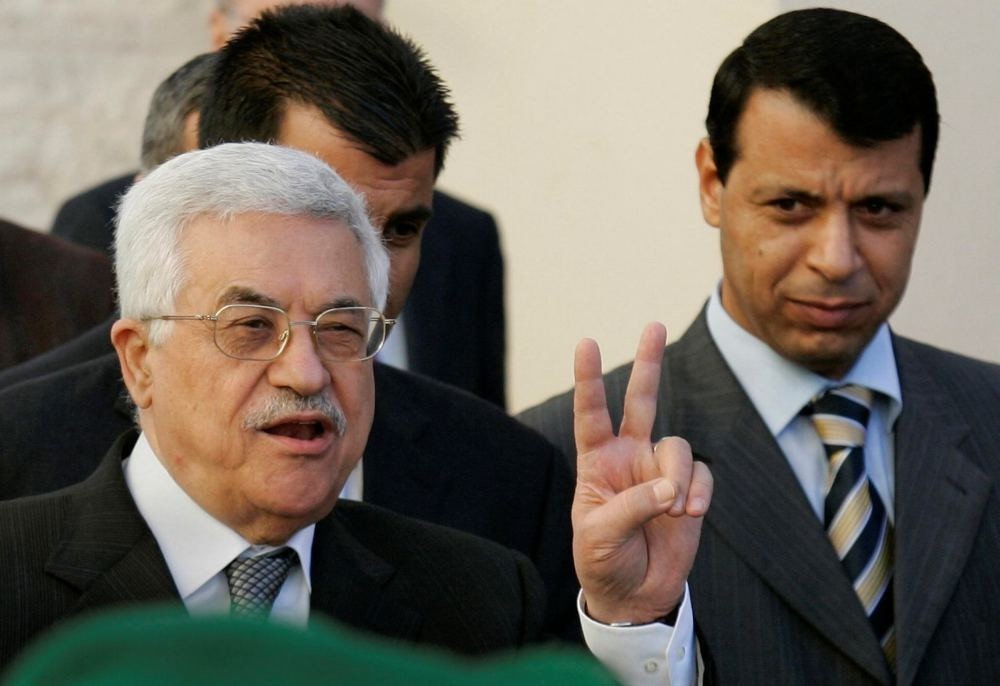
This is especially if Marwan Barghouti, the imprisoned leader of Fatah with overwhelming popular support, remains in Israeli prisons during negotiations with Hamas over a potential prisoner exchange deal.
Dahlan also benefits from his current lack of ties to the Palestinian Authority, at a time when many see him as a prominent competitor to Abbas and the Ramallah leadership, which is widely seen as corrupt in the eyes of the Palestinian street.
One of the key motivations behind Fatah's move toward internal reconciliation is the outbreak of the Gaza war and the significant threat it poses to Palestinian factions in general.
Following the Israeli genocide on Gaza, Fatah and the Palestinian Authority were somewhat sidelined, largely absent from the scene due to their limited ability to influence the course of the war, as noted by the International Center for Strategic Studies on September 16.
The center, based in Abu Dhabi, speculates that Fatah may have seen this as a threat to its standing in Palestinian politics, potentially leaving it out of future agreements between key players involved in the negotiations to end the Gaza war and shape the day after.
As a result, Fatah and the PA may feel the need to regain momentum and show that they are actively engaged in significant political movements within the regional and international efforts related to the Palestinian cause.
The Meir Amit Intelligence and Terrorism Information Center highlights that Abbas has shown a willingness for reconciliation, acknowledging Dahlan's influence in Gaza, West Bank refugee camps, and Lebanon, as well as his goal of securing support and funding from Gulf countries with strong ties to the expelled Fatah leader.
If this step succeeds, it could represent a significant advancement in the reconciliation process; however, the deep mistrust between Abbas and Dahlan, along with the latter's stringent demands, leads many within Fatah to believe that the chances for reconciliation remain slim at this time, according to the Jerusalem Center for Public Affair.
The Reform Bloc within Fatah is calling on President Abbas to take concrete steps to unify the movement, beginning with reversing “arbitrary dismissal decisions,” reinstating salaries for thousands of employees aligned with Dahlan, and forming a government with broad powers to restore Palestinian Authority control over Gaza.
The International Center for Strategic Studies suggests that the significance of this reconciliation is somewhat reduced due to its individual, rather than collective, approach, potentially only reinstating a small group of expelled Fatah members.
This situation can also be seen as Fatah's attempt to appease Arab and regional pressures by accepting a reconciliation that is more superficial than substantive, within a competitive framework where it seeks to siphon leadership away from Dahlan's camp and weaken his influence.
Amid the efforts to bring all parties closer together, “Gaza’s future will ultimately depend on balancing local support, regional cooperation, international engagement, and Israeli intentions,” as per The Media Line.



